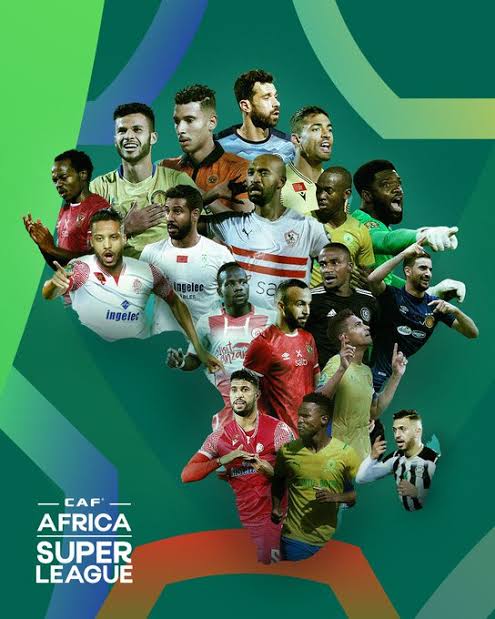With about two months to the kick-off of the inaugural ‘African Football League’, which is slated to kick off on October 21, the Confederation of African Football has opted for a slimmed-down, eight-team version of its proposed African Football League after expected funding from the Saudi Arabian Football Federation failed to materialize.
According to SportsBusiness, it is believed that no broadcast or sponsorship deals are in place for the new competition. To have any chance of breaking even, CAF needs broadcast deals with two pay-television operators: SuperSport, for sub-Saharan Africa; and beIN Sports, for the Middle East and North Africa with the latter appearing highly impossible.

BeIN believes that its current contract with CAF, which runs from 2017 to 2024, with an option to 2028, provides exclusive rights to all CAF events, existing or newly created, during the lifetime of the deal. This would mean beIN would automatically be entitled to the rights to any CAF-operated league or tournament without payment of an additional fee.
In May, it was reported by The Guardian that the SAFF would commit $200m (€182m) per season to sponsor the 24-team season-long competition, underwriting the costs of delivery and $100m prize money for the competing clubs.
The Super League was the centrepiece of plans by Fifa president Gianni Infantino to secure the financial future of African football, following CAF’s decision – under pressure from Fifa – to cancel its $1bn, 12-year media rights deal with the Lagardère Sports agency, which ran from 2017 to 2028.
The media reports followed the signing of a five-year memorandum of understanding between the CAF and the SAFF in Riyadh on May 12. At the signing, CAF president Patrice Motsepe spoke of the agreement opening up “mutually beneficial partnerships” between the confederation and Saudi Arabia. Within days, the press in Egypt, where CAF is based, was being briefed about a Saudi-funded 24-team league.
Things changed dramatically between the end of May and the end of June. At the beginning of July, CAF surprisingly announced that there would now only be an eight-team version of the competition, to take place in October rather than August. One well-placed source told SportBusiness this week: “There is no Saudi money in this event.”
It is not clear where the Saudi money went, nor if it was ever really there. Around the same time, in mid-June, Saudi Arabia withdrew its candidacy for the hosting of the 2030 Fifa World Cup, having been part of a bid with Greece and Egypt. Instead, the kingdom will focus on bidding for the event in 2034.
Even if the tournament had received Saudi backing, one local industry executive said that the logistics of delivering the planned tournament in the timescale available – from May to August, when it was originally scheduled to begin – made it an impossible task.
The logical next step would have been to delay the whole project to 2024, but it is set to go ahead in a truncated form this year. The tournament’s delivery is widely thought to be a point of pride for Motsepe, who has pinned his reputation on its success.
However, at the CAF congress in July, Motsepe said that it would feature the eight top-ranked teams representing all regions of the continent. The names being cited in local press reports – as yet unconfirmed by CAF – are Al Ahly from Egypt, Espérance de Tunis from Tunisia, Mamelodi Sundowns from South Africa, Wydad Casablanca from Morocco, Petro Atletico from Angola, Simba from Tanzania, TP Mazembe from the DRC and Enyimba from Nigeria.
The plan is to play the quarter-finals and semi-finals on a home and away basis, with a one-off final match in Dar Es Salaam, Tanzania. Dates and times for these matches have not yet been communicated but CAF and Fifa are said to be working jointly on a press release about the competition which will be published in the coming weeks.

Motsepe said the change of name from the African Super League to the African Football League was to avoid negative associations with the failed breakaway European Super League. CAF has not said what the prize money will be for the competing teams in the slimmed-down version.
Earlier this month, CAF announced a 17-per cent increase in income last year, earning $125.2m. It cited increases in revenues from both sponsorship and broadcast rights. Overall, it made a loss of $15.7m.
In announcing the results, CAF made a veiled reference to the Lagardère dispute, saying that it “had to take some difficult decisions on the longstanding dispute with some of our partners by settling matters out of court”. The agency is understood to have received a settlement of $50m, against an original compensation claim of $90m.
FIFA and CAF had not responded to requests for comment from SportBusiness by the time this article went to press.
